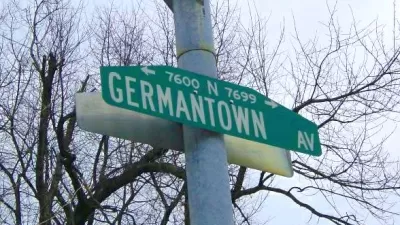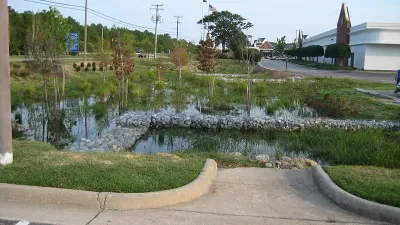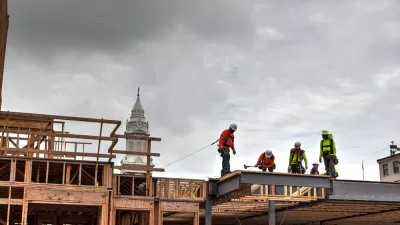A meta-analysis of the archive of popular local planning website PlanPhilly provides insight into the issues and ideas that drive the planning conversation in Philadelphia.
Ken Steif performed meta-analysis of 7,000 articles and article views for the local planning site PlanPhilly. Astute Planetizen readers will recognize the name Ken Steif from a similar analysis Steif performed earlier this year of Planetizen's 14-year archive. For PlanPhilly, however, the analysis drills down to access the themes that drive the discussion about planning in one of the country's richest planning case studies, Philadelphia. Steif explains the value offered by the exercise: "While the last decade has seen an explosion of urban-centric online media, PlanPhilly’s more local focus has helped it differentiate itself. Unlike many of its peer publications, PlanPhilly reports on planning and policy issues that directly effect Philadelphia and its diverse citizenry."
Steif's analysis examines the occurrence of articles corresponding to specific writers, neighborhoods, and keywords, identifying trends among the many articles published over PlanPhilly's eight year history.
Steif identified one trend that held true at the local level as well as the national level: "I found a similar trend in my analysis of article data for the more nationally focused Planetizen. It appears in Philadelphia as elsewhere, the mid 2000’s marked a collective shift in how we envision people and goods moving within cities."
FULL STORY: How 7,000 PlanPhilly stories can tell us where we've been, where we're going

Alabama: Trump Terminates Settlements for Black Communities Harmed By Raw Sewage
Trump deemed the landmark civil rights agreement “illegal DEI and environmental justice policy.”

Planetizen Federal Action Tracker
A weekly monitor of how Trump’s orders and actions are impacting planners and planning in America.

The 120 Year Old Tiny Home Villages That Sheltered San Francisco’s Earthquake Refugees
More than a century ago, San Francisco mobilized to house thousands of residents displaced by the 1906 earthquake. Could their strategy offer a model for the present?

In Both Crashes and Crime, Public Transportation is Far Safer than Driving
Contrary to popular assumptions, public transportation has far lower crash and crime rates than automobile travel. For safer communities, improve and encourage transit travel.

Report: Zoning Reforms Should Complement Nashville’s Ambitious Transit Plan
Without reform, restrictive zoning codes will limit the impact of the city’s planned transit expansion and could exclude some of the residents who depend on transit the most.

Judge Orders Release of Frozen IRA, IIJA Funding
The decision is a victory for environmental groups who charged that freezing funds for critical infrastructure and disaster response programs caused “real and irreparable harm” to communities.
Urban Design for Planners 1: Software Tools
This six-course series explores essential urban design concepts using open source software and equips planners with the tools they need to participate fully in the urban design process.
Planning for Universal Design
Learn the tools for implementing Universal Design in planning regulations.
Clanton & Associates, Inc.
Jessamine County Fiscal Court
Institute for Housing and Urban Development Studies (IHS)
City of Grandview
Harvard GSD Executive Education
Toledo-Lucas County Plan Commissions
Salt Lake City
NYU Wagner Graduate School of Public Service





























